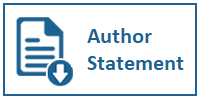Pengaruh Persepsi Kegunaan, Persepsi Kemudahan, Kecepatan, Keamanan 75 dan Kerahasiaan Serta Kesiapan Teknologi Informasi Wajib Pajak terhadap Penggunaan e-Filing Bagi Wajib Pajak Orang Pribadi Di Kota Tangerang, Kecamatan Karawaci
DOI:
https://doi.org/10.31937/akuntansi.v8i1.578Abstract
The objective of this research was to examine the effect of perceived usefulness, perceived ease of use, speed, security and privacy and readiness technology tax payers information to e-Filing usage. The object of this study is the individual tax payers in Tangerang City, Karawaci District. The selection of the sample is determined based on convenience sampling method. Data used in this study was primary data, id est: questionnaires. The respondent in this study were 110. Data analysis technique in this study using multiple linear regression. The result of this study were (1) perceived usefulness have a significant impact towards e-Filing usage; (2) perceived ease of use have a significant impact towards e-Filing usage; (3) speed does not have a significant impact towards e-Filing usage; (4) security and privacy does not have a significant impact towards e-Filing usage; (5) readiness technology tax payers information does not have a significant impact towards e-Filing usage; (6) perceived usefulness, perceived ease of use, speed, security and privacy and readiness technology tax payers information all simultaneously, have a significant impact towards e-Filing usage.
Keywords: e-Filing usage, perceived usefulness, perceived ease of use, readiness technology tax payers information, security and privacy.
Downloads
Downloads
Published
How to Cite
Issue
Section
License
Authors retain copyright and grant the journal right of first publication with the work simultaneously licensed under a Creative Commons Attribution-ShareAlike International License (CC-BY-SA 4.0) that allows others to share the work with an acknowledgement of the work's authorship and initial publication in this journal.
Authors are able to enter into separate, additional contractual arrangements for the non-exclusive distribution of the journal's published version of the work (e.g., post it to an institutional repository or publish it in a book), with an acknowledgement of its initial publication in this journal.
















